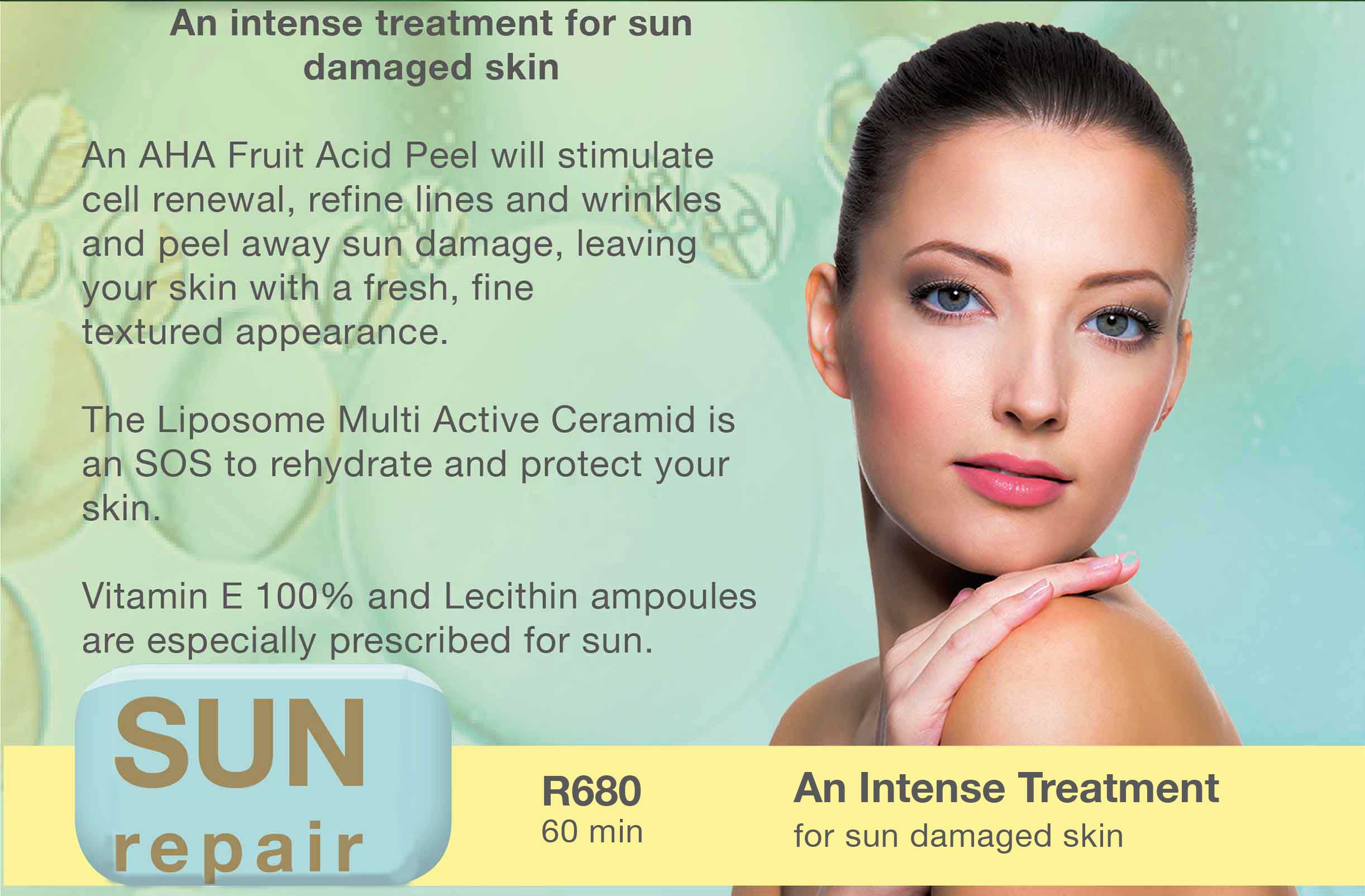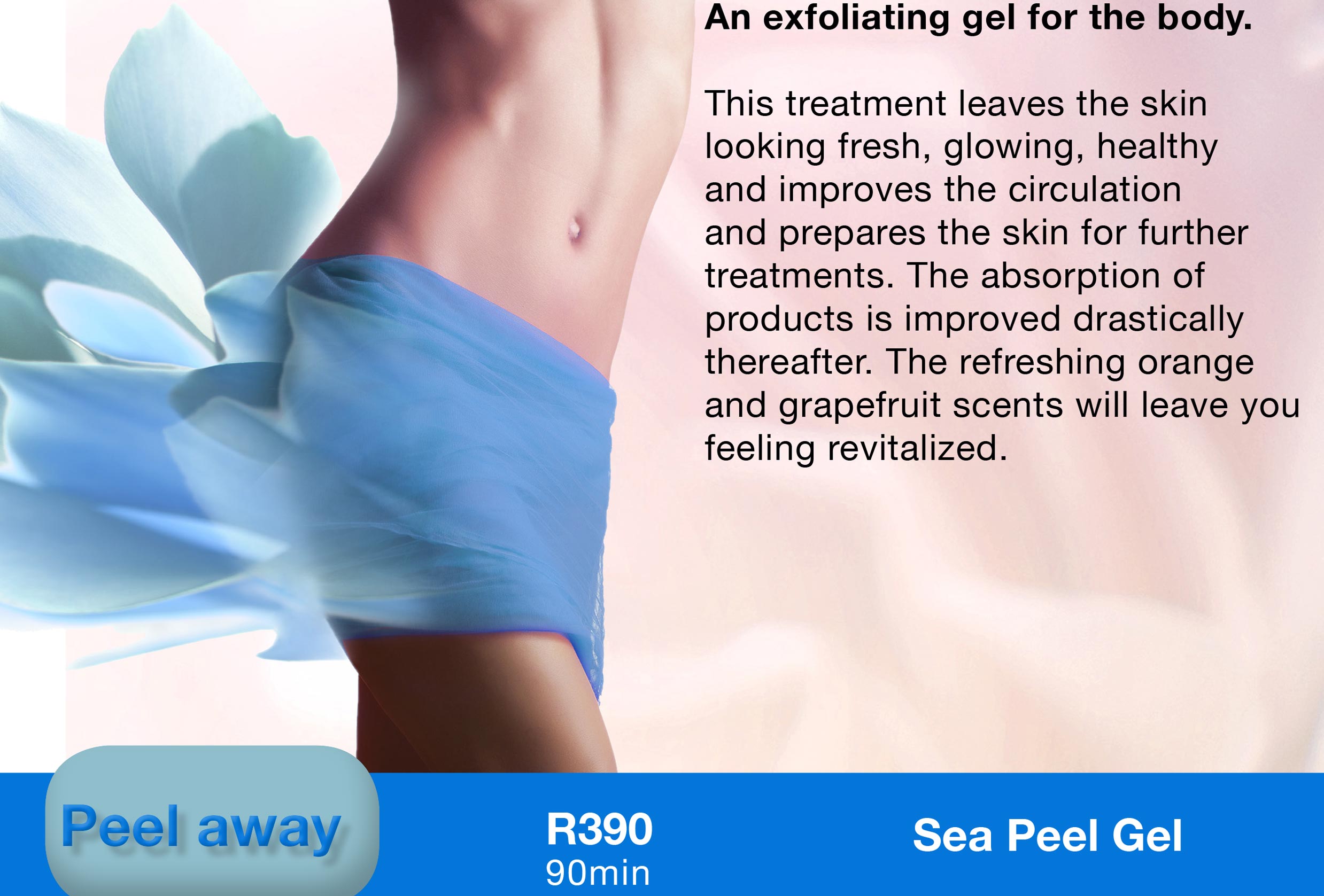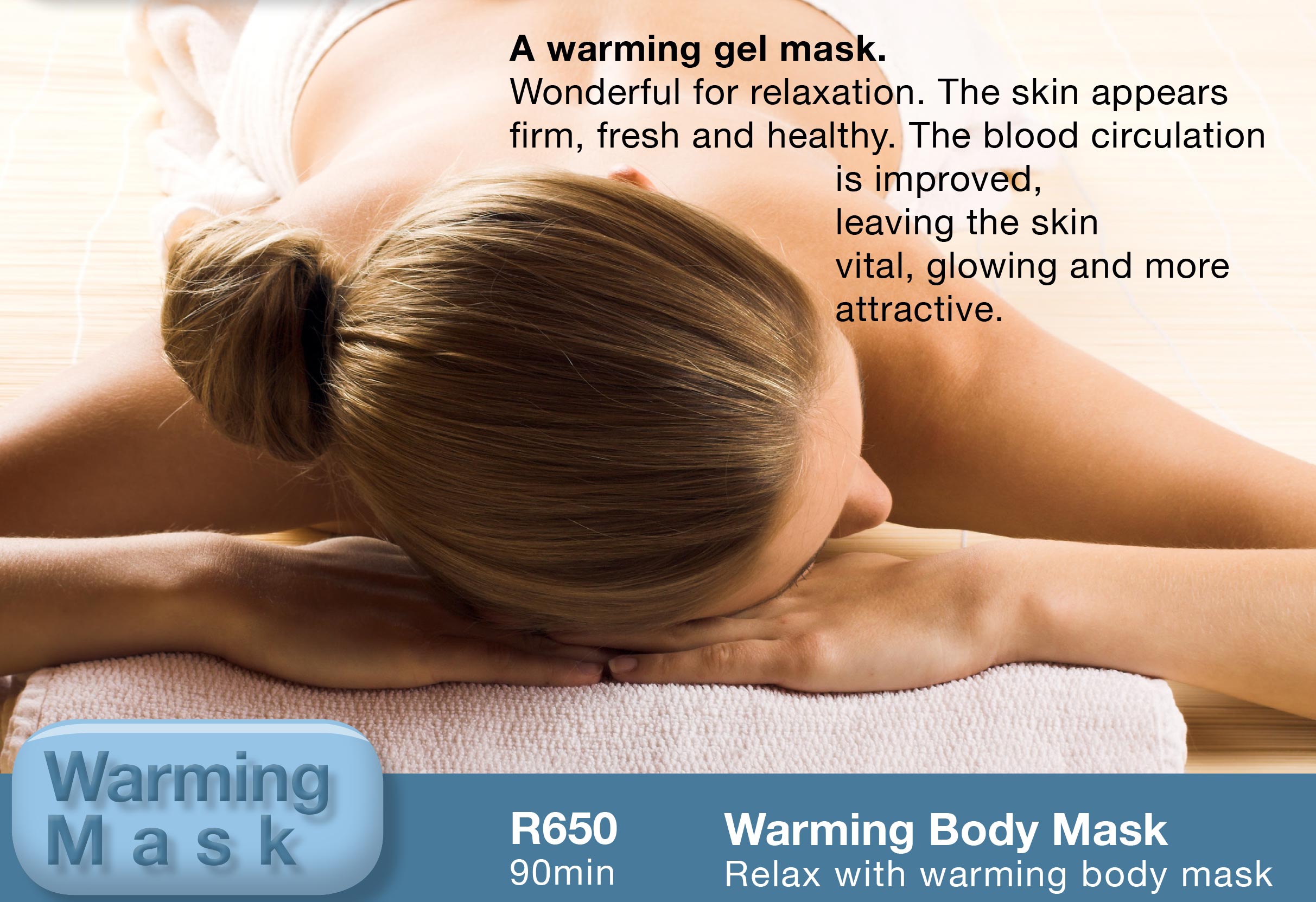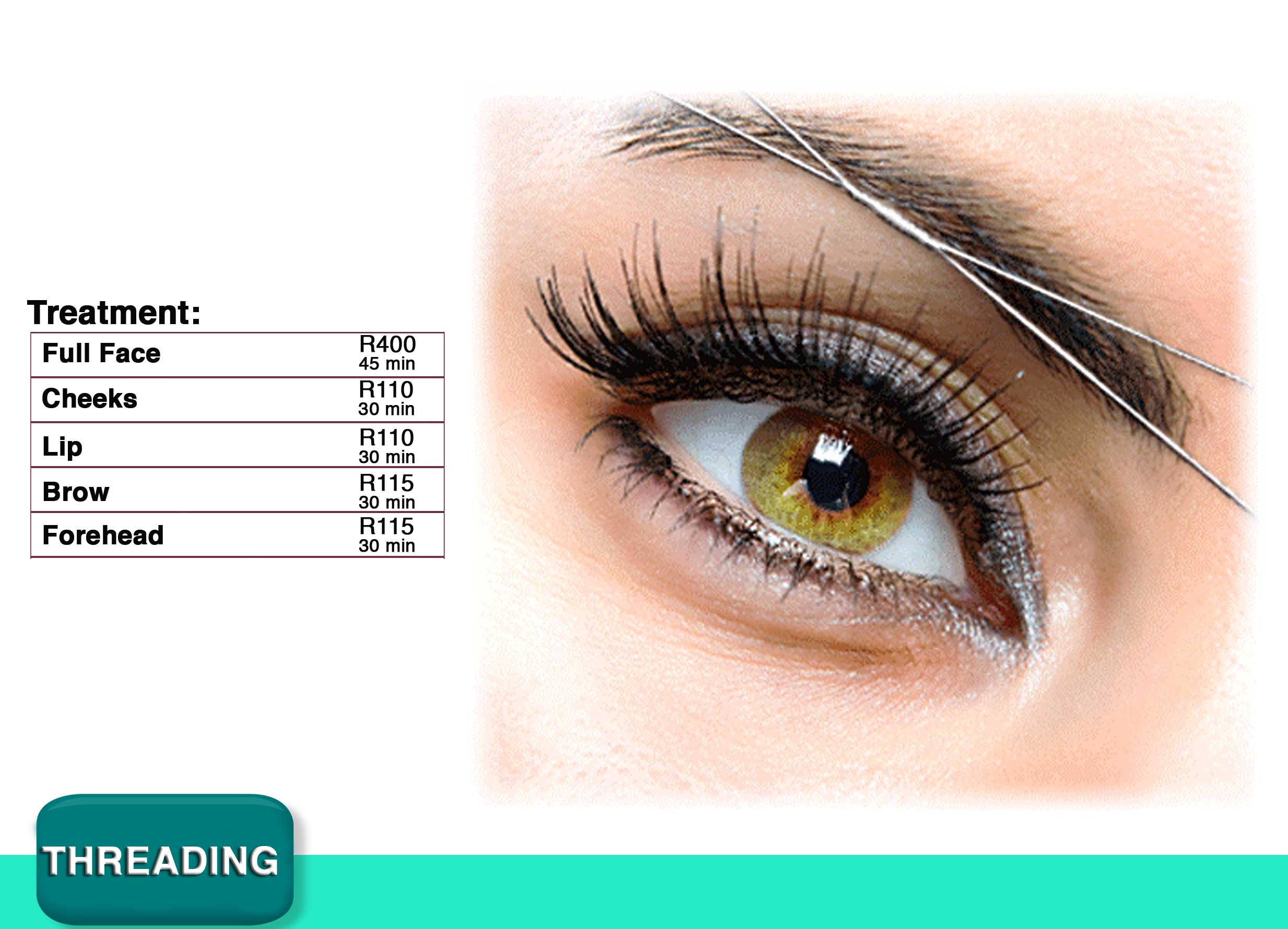Frequently Asked Questions
We regularly receive questions from clients.
Below you will find the answers to the most frequently asked questions.
QUESTION: The hallmark of DR. BAUMANN COSMETIC is “bionome quality”. What does this actually mean?
Answer: According to the Duden dictionary bionomy is the “science of the laws of life”. From this we have derived the term “bionome quality” to clarify the particular quality of our skincare products. It should be in harmony with the skin and consider the needs of the environment and animals. What it really means is that the products exhibit the following characteristics: free from chemical preservatives, perfume-free, with lipids (multilamellar liposomes) which occur naturally in the skin, with valuable natural oils, free from mineral oils, free from animal ingredients and without outer packaging.
QUESTION: Why do you not use preservatives and perfume? There are plenty of people who can tolerate these substances.
Answer: The statistical surveys on allergies best inform one on the most common allergy triggers in cosmetics. These are perfumes and chemical preservatives, which can be confirmed by Dermatological or Allergological textbooks. It is completely unreasonable to suggest that these substances are safe because they can be tolerated for a period of time. Anyone who believes such a thing doesn’t know much about allergies. Before an allergy reflects on the skin there is first a sensitization process which has to pass which takes at least 5 days, but can take many years. This risk can only be reduced if one does not use dangerous allergens.
QUESTION: You use “multilamellar liposomes” in your products. What is special about them?
Answer: Multilamellar liposomes consist of the same lipids of which the skin is composed. Thereby, under normal circumstances, an allergic reaction is excluded. It is impossible to imagine a more natural skincare. But multilamellar liposomes also have a number of other benefits: they greatly increase the skin’s moisture content, resulting in a clearly smoother and more beautiful skin. They transport important active ingredients such as skin-friendly vitamins deep into the skin so that they can deploy their effect in the right places. Together with evening primrose oil and tea tree oil, multilamellar liposomes have a really wonderful effect on impure skin with blemishes.
QUESTION: Why are your products environmentally friendly?
Answer: Where ever possible we do not use excessive packaging such as outer wrappings. These have nothing to do with the effectiveness and compatibility of the skincare products. That is what it comes down to.
QUESTION: You have no animal ingredients in your products? Why?
Answer: Animal ingredients have no advantage over plant substances. These ingredients originate, just as meat on a plate, from living creatures, which are just as conscious as we humans are. To use animal ingredients in cosmetic products and to eat meat, animals must be slaughtered. And slaughter means suffering and death for these animals. Whoever views video recordings of animal farming, animal transport and abattoirs can hardly use these ingredients in products or eat meat, and if he does, he has no compassion. As Arthur Schopenhauer said: “compassion is the basis of all morality”. And in this he expressly included animals! Another note on caviar: the sturgeon’s belly is slit open while it is still alive, in order to retrieve the eggs from its body!
QUESTION: Is DR. BAUMANN COSMETIC engaged in animal protection in any other way?
Answer: Yes, we support many animal protection organisations which fight against animal experimentation, hunting, bullfighting, the use of fur etc. We are one of the main sponsors of Peta, the largest animal rights organisation in the world.
QUESTION: What innovation can be expected from DR. BAUMANN COSMETIC in the near future?
Answer: in 2003 we had a sensational breakthrough in product development with the SkinIdent line. These are skincare products which can not cause allergic skin reactions, as they contain exclusively active ingredients and vitamins which occur naturally in the body.
QUESTION: What is the difference between the SkinIdent Creams?
Answer:
THE SKINIDENT VITAMIN CREAM : Is anti free radical, regenerating balancing and rehydrating with strong anti aging properties.It was for anyone that needs protection and regenerating. Less types of vitamins and less concentrations.VITAMIN CREAM SUPER: Is for extreme situations of aging atrophic skins with lack of firmness and hydration. (unbalanced barrier function) Sun damaged extreme smokers skin of Mature person. Has an extremely high concentration of Vitamines even compared to the SKINIDENT VITAMIN CREAM (get the tip) SUPER) more types of vitasmines
THE SUPER CREAM: Has the advantage that it containes both Ceramides and Vitamines.The Phytosphingosines repair the cells in the stratum corneumand Ceramides are provided for immediate rekief and protection of the stratum corneum. Aluminium lactate is astringent and combined with triethylcitrate they work synergistically against bacteria that causes unpleasant odor.the result is a pleasant odor and less perspiration.But is no anti per spirant in the sense of inhibiting the sweat glands. It is a deodorant
QUESTION: An article talked about niacinamide’s efficiency, and how it should be used in combination with resveratrol. I know the Dr Baumann Food has a supplement for green tea that contains this, but since we don’t have that here in Canada, I have a couple questions for you:
1.Is there anything in the cosmetic line that contains this ingredient? (I couldn’t find it)
2. Do you agree with the article’s explanation and opinion?
3. Would you then recommend clients taking a multivitamin or suppleent that contained resveratrol (or a glass of wine for that matter) if they are using Lightening cream to increase it’s potency?
Answer: I spoke to Dr Baumann and he said the clinical research done with regard to Niacinamide (found in our Bleaching cream)
there is no strong scientific data that supports the need for Resveratrol (as an anti oxidant) to be present in skin care when one has Niacinamide in the product. On the contrary Niacinamide has wonderful regenerating and anti-aging properties, as well as helping to treat acne and is used in treating Hyperpigmentation. Together with the Alpha Arbutin has shown excellence, rapid results when used for Hyperpigmentation. It is another matter when Niacinamide is taken internally then one can also ensure that one has resveratrol in the form of fruit and vegetable for example. His final comment was no you don’t need a glass of wine to enhance or supports the effects of Niacinamide but he recommends a great glass of wine anyway for good feelings!
QUESTION: What is the benefits for using Dr Baumann Liposomes?
Answer: LIPOSOMES
The liposomes created by DR BAUMANN are natural Phospholipids created from Soya. A double membrane is created with hydrophils on the outside and lipophils on the inner part. As a result liposomes and water elements and vitamins eg Vitamin C can be stored in the hydrophilic layers and fatty acids and oil based vitamins can be stored in the lypophilic layers. In order to provide the skin with the vitamines and fatty acids it needs to function in an optimal way and in order to treat the skin at the basal layer and in fact all layers of the skin Liposomes are the perfect transporter system to guarentee that this occurs. It is also a perfect repairer for damaged intercellular substance and cell membranes.The Liposomes mimic the Phospholipides that make up the liposome membrane of the skin cells and the intercellular substance. Dr Baumann produces Multilayer Liposomes (12 layers) as our research has shown that single layer liposome had little effect on the skin. Multi layer Liposomes were highly effective and did reach the basal layer. We had 100% increase in hydration in just 7 day
QUESTION: What is the content persentages of ingredients in the Dr Baumann Belasching Cream?
Answer: In the Bleaching Cream Content:
The Alpha Arbutin is 1%
The Niacinamid is 4.5%
The combination makes for a very effective healthy safe lightening effect.
QUESTION: What is the CN number on the Dr Buamann Products?
Answer: The CN number is a batch number. When a batch of product is produced they always keep some as a reference, So that at any stage if their is a querie about a product the batch number would indicate when that product was produced and if there was a problem with it they could check that production batch.
QUESTION: if you were to rank Dr. Baumann’s moisturizers from lighter to heavier. What would the scale be like???
I was thinking about this because sometimes I wonder if Intensive Combination and Sensitive Normal/dry would be similar in texture? The way I try to recommend moisturizers is usually based on a “scale” or heaviness of texture. Most of the time this is a criteria for a purchase when it comes to clients (“it feels too light” and “it feels too rich” sort of situations, I’m sure you know!)
Where would Multivitamin Lotion fall? I would assume it’s got the lightests texture of them all…
I know it’s a random question, but do you know what I mean by it?
Answer: The lipid percentages of all the products:
SKINIDENT:
Art.
Bezeichnung
Liposome %
Fettgehalt %
zusätzlich
9000
Liposome Vitamin
12
15
9001
Liposome Ceramid
12
13,5
9002
Liposome Super
18
19,15
+ 4,3% Nanosome
9030
Liposome Light
3,7
5,6
9003
Vitamin Cream oily-normal skin
27,6
9004
Vitamin Cream dry skin
34,3
9005
Ceramid Cream oily-normal skin
27,6
9006
Ceramid Cream dry skin
34,7
9007
Super Cream oily-normal skin
30
9008
Super Cream dry skin
35,3
9009
Eye Cream
28,8
9017
Vitamin E, A, Lipid Ampulle
100
50% Vit. E-Acetat, 0,8% Vit. A-Palmitat
9018
Vitamin C,H, D-Panthenol Amp.
0
Vit. C 0,2%/H 0,05%/ 4% D-Panthenol
9019
Hyaluron-Urea Ampulle
0
0,5% Hyaluron- säure, 8% Urea
9020
Lecithin-Ceramid Ampulle
12,7
2,3% Lecithin, 0,3% Glycosphingolipid
9023
Eye Care Super Ampulle
32,85
9027
Eye Care Super
34,65
9010
Eye Gel
0
9011
Facial Tonic
0
9012
Cleansing Milk
26,8
9013
Body Lotion
26
9014
Liposome-Vitamin-Ceramid Mask
6,7
14
9015
Cream Mask
27,5
9016
Self Tanning
0
9028
Body Lotion Vitamin
27
9029
Body Lotion Super
32
9031
Face Cleanser
1
9032
Shampoo dry Hair
1
9033
Conditioner
17
9934
Hand Care
24
9935
Foot Care
30
9037
Cleansing Milk spezial
33
9038
Facial Tonic Spezial
0
9939
Facial Peeling
13
9040
Shower Gel
0
9041
Sun Solarium Vitamin
4,5
25,4
9042
Afer Sun Vitamin
28
9043
Shampoo oily and normal Hair
1
SkinIdent
Seite 2 von 2
Art.
Bezeichnung
Liposome %
Fettgehalt %
zusätzlich
9044
Liposome Vitamin Super
15
18,5
9045
Vitamin Cream super
31,7
9046
Body Lotion Vitamin Super
34
9047
Lip Balm (ab 15. Jan. 2012)
43,5
9048
Lip Balm Vitamin (ab 15. Jan. 2012)
46,8
Dekorative Kosmetik
Art.
Bezeichnung
Fettgehalt %
7002 – 7007
Concealer (Stift)
70%
7008 – 7022
Camouflage
53%
7025 – 7032
Blush/ Rouge
0%
7033 – 7037
Make Up Crème
21%
7038 – 7046
Make Up flüssig
9%
7050 – 7056
Loose Powder
0%
7070, 7071
Compact Powder
3%
7080 – 7098
Eyeshadow
3%
7421 – 7445
Lip Stick
80%
7446 – 7449
Lip Stick nude
80%
7304, 7305
Mascara black + brown
21%
7201 – 7209
Brillant Powder
3%
7400 – 7455
Lip Liner
70%
7306 – 7322
Eye Liner
70%
7415
Lipgloss transparent
100%
7412 – 7420
Lipgloss
97%
7460 – 7474
Powder Cream
41%
7501 – 7503
Flüssig-Eyeliner
10%
7504 – 7506
Flüssig-Concealer
10%
Dr. Baumann
Art.
Bezeichnung
Liposome %
Fettgehalt %
1001
Liposome MultiActive Kamille
12
16,5
1070
Liposome MultiActive light
5
6,6
1003
Liposome MultiActive SUPER light
2,5
2,7
1000
Liposome MultiActive Ceramide
11
16,5
1032
Liposome MultiActive Teebaum
12
16,5
1075
Liposome MultiActive Man., TT, Lavendel
12
16,5
1076
Liposome MultiActive Vit. E + C
12
16,5
1058
Liposome MultiActive Super Cure
20
24,6
1025
Sensitive Super light
17
1034
Sensitive fettige-norm. Haut
25
1033
Sensitive norm.-trockene Haut
41
1035
Couperose Skin
41
1006
Supercream
28
1002
Intensive norm.-Mischhaut
23
1004
Intensive trockene Haut
32,7
1005
Intensive sehr trockene Haut
47
1009
Intensive getönt hell
22
1007
Intensive getönt dunkel
22
1010
Eye Care
20
1011
Eye Gel
0,6
1920
Eye Make Up Remover
41
1913
Multivitamin Lotion
11,7
1914
Multivitamin Fluid
6
1912
Intensive Lotion
45,5
1301
Baby + Kindercreme
30
7033-7037
Make Up
18,5
1024
Bodylotion
28
1079
Bodylotion SUPER
31
1108
Leg Lotion
26
1110
Fußcreme Teebaum
18
1112
Schrundencreme
28
1018
Cleansing Gel
1,7
1078
Cleansing Milk Special
41
1019
Cleansing Milk
32
1027
Hand Cream
19,2
1029
Body Special light
5
5,8
1030
Body Special strong
17
1090
Solarium Liposome
5
27
1093
Sun Lotion F12
26
1094
Sun Lotion F20 mineral.
28,7
1092
Sund Lotion F30 mineral.
29
1091
Sun Cram F30
25
1097
Sun Lotion F30 chem.
32,4
1098
Sun Lotion F20 chem.
27,4
1036
After Sun Lotion
27,4
Dr. Baumann
Art.
Bezeichnung
Liposome %
Fettgehalt %
1037
Selftanning Lotion
21
1941
Liposomen Mask
6
10,1
1942
Aloe Vera Mask
1,12
1067
Creme Mask norm.-trockene Haut
20,7
1068
Creme Mask fette-unreine Haut
16,1
1063
Shampoo
4,8
1065
Conditioner
13,6
1071
Haar Revitalisierung
0,7
1160
Bleichungscreme
19,5
1161
Pimple Creme
22,4
1190
Zink Cream
20,4
1191
Active Care
8,2
15,2
2080
Alge Thermo Mask mild
20
2081
Alge Thermo Mask strong
20
1938
Peeling mild
34
1939
Peeling medium
34
1940
Peeling strong
34
Ampullen
Art.
Bezeichnung
Liposome %
Fettgehalt %
1044
Aloe Vera
0
1045
Humidity
0
1046
Vitamin E
1,5
1047
Vitamin A
0,3
1048
Rosskastanie
0
1049
Jojoba
100
1050
Ceramid
0,2
1051
Lecithin
17,2
1053
Herb-Vital
0
1054
Hyaluronic
0
1055
Propolis
0
1056
After AHA
20,4
1057
Evening primrose Oil
100
1077
Vitamin E 100%
100
Dr. Baumann
kein Fett enthalten in:
Art.
Bezeichnung
Liposome %
Fettgehalt %
1015- 1017
Tonic
1028
Decolleté Special
1095
Sun Gel F10
1096
Sun Gel F10
1031
Insect Stopp
1073
Deo
1074
Deo
1021
Anti-Comedo-Lotion 4,8
2022
Anti-Comedo-Lotion 9,8
2072
Eye Tonic
2100-2102
AHA Peeling
1114
Styling Mousse
1115
Hair Spray
1044
Aloe Vera
kein Fett enthalten in:
Art.
Bezeichnung
Liposome %
Fettgehalt %
1069
Aloe Vera PLUS
1045
Humidity / Moisture
1053
Herb-Vital
1054
Hyaluronic
1055
Propolis
1048
Horse Chestnut
zusätzlich
100% Aloe Vera Gel
5% Sorbitol
1,2% Vit. E-Acetat, 0,3% D- mixed Tocopherol
0,4% Vitamin A-Palmitat
7% Rosskastanienextrakt
100% Jojobaöl kalt gepresst
0,2% Glycosphingolipid, Phospholipid
2% Lecithin
0,03% Kamille/Basilikum/ Bohnenkraut
0,4% Hyaluronsäure
4,5% Propolis
8,52% Licithin/Vit.E/A/C/ß- Carotin, Aloe Vera 25%
100%
100% Vit. E-Acetat
BeauCaire Seite 1 von 1
Art.
Bezeichnung
Liposome %
Fettgehalt %
zusätzlich
133
Liposome light
2
5,8
100
Liposome medium
5
11,3
101
Liposome SUPER
10
15
102
Liposome Tea Tree (Teebaum)
5
11,3
134
Intensive light
14
103
Intensive medium
23
104
Intensive rich
32
105
Intensive Teebaum
15
106
Face & Body Peeling
34
107
Hand & Nail Care
19
108
Self Tannig Cream
23
136
Gel Mask
5
5
137
Cream Mask
21
109
Make up hell
19
110
Make up bronze
19
111
Make up dunkel
19
138
Make up beige
19
112
Eye Moisture Cream 15ml
19,4
113
Eye Moisture Gel 15ml
0,5
115
Cleansing Milk
31,5
150
Super sensitive light
16,5
151
Super sensitive medium
24,5
152
Super sensitive rich
32
153
Intensive Lotion
42
118
Body Lotion mild
28
120
Body Shaper
14
122
Hair Conditioner
23
124
Sun Lotion LSF 12
22
135
Sun Gel LSF 8
0
125
Foot Care mit Teebaumöl
18,7
126
Baby Cream
30
128
Pimple Cream
17,5
129
Deodorant-Cream
9
SPA Seite 1 von 1
Art.
Bezeichnung
Fettgehalt %
3008/3009/3010
Badeöle
88
4013/4014
Körperöle
100
3015/3016/3017
Körperöle
100
4026
Handmaske neutral
25,5
4027
Handmaske warm
25,5
4028
Handmaske kalt
25,5
4029
Fussmaske neutral
29,5
4030
Fussmaske warm
35,5
4031
Fussmaske kalt
37,5
4032
Warming Gel
0
4033
Cooling Gel
0
3035
Essential Care oily skin
20,5
3036
Essential Care normal skin
28
3037
Essential Care dry skin
35,5
3047
Body Lotion Citro Vanilla
29,7
3048
Body Lotion Orange
29,7
3049
Body Lotion Jasmin
29,7
3050
Body Lotion Rose
29,7
This will make it very easy to determine which creams are heavier and lighter in texture, as the lighter textured creams will have a lower lipid content and the richer textured creams a higher lipid content.
QUESTION: I have someone asking about the beads in the Peeling Strong, Medium and Mild.
I understand it’s polyethylene beads but this person was asking about the impact it has on the environment etc and I wasn’t sure how to reply?
Answer: The granules in the Dr Baumann Peeling Mild, Medium and Strong are no longer polyethylene beads. They have been replaced with Jojoba Oil beads. Because there were so many bottles made with the polyethylene labels on Dr Baumann will continue to use them until they are finished. Please inform all your customers of the change.
QUESTION: What contents does the Dr Baumann Fruits Acids have?
Answer: DR BAUMANN FRUIT ACIDS
They are a hyaluronic Acid/urea gel enriched with Glycoacids that are listed under the AHA Fruit Acids. They exfolliate the uppermost layer of the skin.They are used without further additional addatives. The concentrations of the fruit acids are 10% ,20% or 30% of Fruit acid within the gel.The fruit acid comes from glycolic Acid derived from pineapple, grapes and lemon. Optimal treatment is in conjunctzion with Liposomes.
QUESTION: I was wondering if you knew the percentage of retinyl palmitate in our Vitamin A ampoule?
And while we are at it, I was wondering why Dr. Baumann uses retinyl palmitate instead of retinol?
I’m assuming several reasons, one being RP is milder than Retinol, the other is that if I’m not mistaken, retinol always comes from an animal source?
Answer: The percentage of Retinyl Palmitate in the Vitamin A ampoule is 0.4%
Retinol is not used because it becomes oxidized really easily and has toxic potential and can cause irritation.Also because it is derived from an animal source. Retinyl Palmitate is the mildest form and can be store by the body in the liver and used as is needed. It is released into the system from the liver by enzyme activity.It is non toxic and completely body compatible Retinol comes from fish liver oil.
QUESTION: New ingredients in the bleaching Cream and why it was changed?
Answer: This is still Dr Baumann’s take on Hydroquinine .
Health Concerns: Hydroquinone works by decreasing the production of melanin pigments in the skin. Because the chemical lightens skin by reducing melanin, it simultaneously increases exposure to UVA and UVB Rays deep in the skin This increases skin cancer risks due to UV exposure, in addition to the carcinogenic effects of the chemical itself. The chemical is allowed in personal care products in the United States in concentrations up to 2 percent. It is banned in the European Union for good reason.DR BAUMANN sees Hydroquinine a highly toxic.In my personal experience the hydroquinone can disturb the natural melanin production to such an extent that the skin becomes super sensitive to sun exposure. It becomes patchy and in some cases the result is hypo-pigmentation, The Hydroquinine can also be a cause of allergies. This is also confirmed by Dr Baumann. Here are some more medical opinions on the use of Hydriquinine:
Is it safe? There is no doubt about it, hydroquinone is an effective pigment-lightener; however, much attention is now focused on its safety. Not only is safety an issue, but concerns also stem from its designation as “an extreme sensitizer;”5 many individuals are allergic to hydroquinone, and others experience serious contact dermatitis with repeated use, leading, unfortunately, to a prescription for a steroid cream to counter the associated irritation. In extreme cases, a condition known as onchronosis can occur, resulting in blue-black macules or hyperpigmentation accompanied by acne-like lesions. Onchronosis generally requires higher concentrations of hydroquinone and is more prevalent in darker skin. However, lower concentrations may also illicit a poor response, too, which has led many dermatologists to a prescriptive cycling of hydroquinone involving using hydroquinone-containing products for four months, stopping for four months and resuming again for four months, and so on. During the off months, a hydroquinone-free brightener is recommended. At the other end of the spectrum are concerns that hydroquinone causes hypopigmentation, or white spots. This is more prevalent in olive complexions.
Being a metabolite of benzene, hydroquinone has potential mutagenic properties. The Occupational Safety and Health Administration (OSHA) in the United States claims “hydroquinone is mutagenic and has cancer-causing potential.” In 1994, the Journal of the American College of Toxicology (now known as the International Journal of Toxicology) published “The Addendum to the Final Report on the Safety Assessment of Hydroquinone.” Its conclusion stated that “hydroquinone is a potent cytotoxic agent that causes mutations and alterations to DNA, and that it should not be used in any leave-on type of product; it is safe for rinse-off products when used in concentrations less than 1%.” When this was published, many cosmetic manufacturers opted to discontinue their hydroquinone lighteners and some countries went so far as to ban hydroquinone from skin-whiteners. For example, hydroquinone is strictly regulated in many African and Asian countries, and its use is prohibited in the European Union (EU) and Japan. Unfortunately, many hydroquinone-containing whiteners remain on the market to this day. As a matter of fact, most skin-whitening serums and creams currently available contain 2% hydroquinone.By: Diana Howard, PhD associated with use in skin lighteners, hydroquinone may also be a contaminant in other cosmetics ingredients. It’s one of the worst ingredients used in personal care products and may disproportionately affect women of color, who are more likely to be exposed to hydroquinone if they use skin lightening products.
Products That May Contain Hydroquinone.
Hydroquinone is commonly found in products marketed to lighten the skin, and is one of the most toxic ingredients still used in cosmetics. It is marketed most aggressively to women of color who also tend to use a greater number of beauty care products (i,ii). As a result, individuals who use skin lighteners with hydroquinone may also use other products with highly toxic ingredients, such as those found in hair relaxers, hair colorings, nail products and some glues used in hair extensions. Very little research has explored how the health effects of a single chemical are increased with exposure to other chemicals, but the research that has been done suggests that some effects are considerably magnified (iii).In addition to its purposeful use in skin lighteners, hydroquinone may be an impurity in ingredients commonly found in facial and skin cleansers, facial moisturizers and hair conditioners. These ingredients include tocopheral acetate, found in 24.9 percent of products in the Environmental Working Group’s Skin Deep database; tocopheral, found in 12.1 percent of products; tocopheral linoleate and other ingredients with the root “toco.”
Health Concerns
Hydroquinone works by decreasing the production of melanin pigments in the skin. Because the chemical lightens skin by reducing melanin, it simultaneously increases exposure to UVA and UVB rays deep in the skin (iv). This increases skin cancer risks due to UV exposure, in addition to the carcinogenic effects of the chemical itself. The chemical is allowed in personal care products in the United States in concentrations up to 2 percent. Although banned in the European Union, a UK news report found that products containing hydroquinone were relatively easy to procure.The U.S. Cosmetics Ingredient Review Panel indicates that hydroquinone is unsafe for use in products that are left on the skin (v,vi), but due to lax enforcement, directions for skin lightening products containing hydroquinone encourage frequent and consistent use on the skin (vii).
The Environmental Working Group’s Skin Deep database, which compares cosmetic ingredients to more than 50 international toxics databases, identifies hydroquinone as a carcinogen, immunotoxicant and developmental and reproductive toxicant, and also identifies concerns regarding the ingredient’s risks for various organ systems, the endocrine system and neurotoxicity (viii).
In addition to concerns about long-term toxicity, hydroquinone is linked to a skin condition called ochronosis in which the skin becomes dark and thick
QUESTION: What is DR BAUMANN’s take on Peptan in ingestible and topical forms?
Answer:
1.FIRSTLY AS A PRINCIPLE DR BAUMANN WOULD NEVER CONDONE THE USE OF INGREDIENTS DERIVED FROM AN ANIMAL SOURCE. FROM AN ETHICAL POINT OF VIEW. Hydrolyzed collagen is produced from collagen found in the bones, skin, and connective tissue of animals such as cattle, fish, horses, pigs, and rabbits
2. THERE IS ALWAYS A DANGER THAT THE INGREDIENT COULD BE CONTAMINATED: THERE IS NOTHING CONCLUSIVE THAT PROVES THAT TESING CAN GUARENTEE FREEDOM FROM CONTAMINATION.
3. THERE IS A RISK OF AN ALLERGIC REACTION: Safety concerns – As Hydrolyzed collagen,is made from animal elements including skin, bones, and connective tissue. It is possible that consumption of hydrolyzed collagen risks contraction of Transmissible spongiform encephalopathy.The U.S. Food and Drug Administration (FDA), with support from the TSE (Transmissible spongiform encephalopathy) Advisory Committee, has since 1997 been monitoring the potential risk of transmitting animal diseases, especially bovine spongiform encephalopathy (BSE). Scientific evidence is insufficient at this time to demonstrate that these treatments would effectively remove the BSE infectious agent if present in the source .
Production IN DETAIL: The process of hydrolysis involves breaking down the molecular bonds between individual collagen strands using heat and either acid or alkali solutions. Typically, with skin sourced collagen, hides are put in a lime slurry pit for up to 3 months, loosening collagen bonds; the hides are then washed to remove lime, and the collagen extracted in boiling water. The extracted collagen is evaporator concentrated, desiccated with drum driers.
Cosmetics: In Cosmetics, hydrolyzed collagen may be found in topical creams, acting as a product texture conditioner, and moisturizer.
4. AGAIN A RISK OF ALLERGIES; MAD COW DISEASE AND IN A GOOD CASE HAS A SUPERFICIAL SURFACE EFFECT.
QUESTION: What is the difference between two Dr Buamann cleansing milks?
Answer: If people have a sensitive skin they could experience a reaction to either of the ingredients mentioned. Although both ingredients have always been considered skin compatible. The high concentrations of Vitamin E could also be responsible in sensitive reactive skins. I have always said in the training if people have that type of skin the should use The Normal Dr B Cleansing Milk or in extreme cases the Beau Caire Line instead.
QUESTION: A lady got the Intensive for Very Dry Skin and she’s phoned me to say that it’s extremely sticky. She has to warm it up in her hands before she can apply it to her face and then she needs to “paste/stick” it onto her skin. Is that normal for that moisturiser to be that extremely sticky? There’s a sample here and it feels totally fine (thick, but not too thick). I’ve been asked a few times about the best Product for scars. Is there any specific product that you can recommend?
Answer : the Intensive range is generally quite rich because it contains Shea butter. Especially Intensive for Very Dry Skin. If this is the case please post it back to Adam and we will replace it. Before she takes another let her try some samples of the intensive range and see what she finds most comfortable.
Re Scarring Firstly a course of AHA peels (a six week course) one every 2 weeks with AHA 30 % Then for scarring liposome Solarium under her recommended cream-a Vitamin E ampoule 100% and in addition can use Vitamin A ampoule at night for cell regeneration.
QUESTION: Concerns about alchol in the ethereal oils, isn’t it a bad ingredient?
Answer: Regarding the essential oils. It is correct that in the Dr Baumann oils there is alcohol. It is body identical alchohol only.
The reason for this is not to preserve the ethereal oils but in fact to dilute the oils somewhat.It is done to allow for a better application (diluted) because as we all know ethereal oils can cause irritations and sensitivities. Especially if one is not experienced. It is better to recommend for people who have not studied aromatherapy or are inexperienced in that area. For those experienced in working with oils one can simply order the etherial oils to be found in the SPA line. On these oils there is a warning regarding the possibility of causing irritation to the skin.
QUESTION: I have come across several articles on “top chemicals that are harmful” or “dirty dozen in cosmetics” and I always want to feature them and use them as support material, but I end up realizing theres always a couple of “harmful” ingredients that Dr. Baumann uses, so I can’t really use these articles. My two main concerns are SLS and butylene glycol…. I even had a client switch lines because Dr. Baumann had butylene glycol!! I have had a couple of clients ask about them too. What can you tell me a bout it? How can I deal with these questions when they come up?
Here is one article
http://www.mindbodygreen.com/0-9084/8-deadly-chemicals-in-your-beauty-products.html
The other question is Aluminum in Dr. Baumann deodorant…. is the one we use for deodorants different? or harmless?
Answer: Butylene Glycol- should not be confused (and often is by the consumer) with Propylene Glycol (NOT GOOD)
Butylene glycol is a chemical compound (1,3-butanediol)—a colorless organic alcohol used in the following ways:
1. as a solvent (helps other products dissolve in water),
2. as a viscosity-decreasing agent (to thin creams and gels so they’re easier to use),
3. and as a conditioning agent.
You can find it listed on the product labels of hair care products, moisturizers, foundations, sunscreens, eye creams, mascaras, and more. It’s also used as a food additive to add flavoring—it has a sweet flavor and a bitter aftertaste—When placed on the skin or ingested, butylene glycol is absorbed and broken down into “gamma-hydroxybutryic acid,” a naturally occurring compound found in humans. The Cosmetic Ingredient Review (CIR), the FDA, and the World Health Organization have all found butylene glycol to be safe.
Dr Baumann stressed that it is not irritating, is absolutely well tolerated by the skin. He also said it is used in conjunction with foodstuff.
Aluminium Lacate skin friendly again is sometimes confused with aluminium hydroxychloride found in most deodorants.
However Dr Baumann is working on an Akluminium Lactate free deoderant but this is only possible in a cream form –will keep you updated.
SLS – Has already been changed in the Cleansing Gels and is being worked on now to change it in the shampoos. (the difficulty as you know is to still obtain a reasonable foaming effect that the customers expect) After the shampoos the shower gel will be changed.
Please note: Dr Baumann doesn’t believe that the SLS is not good he is changing it because of consumer concerns
QUESTION: Is the SkinIdent Range Safe?
Answer: The SkinIdent products are perfectly safe to use whilst breast feeding. As the name suggests they are skin identical and completely mimic the components that exist naturally in the skin. In fact along with all the DR BAUMANN products they are the only ones that can safely be used by new Moms and Babies/toddlers.
QUESTION: General Information from the Dr Baumann International Education Department (should I add anything else)
Answer: As Dr Baumann is constantly doing research in order to find more effective Bionome ingredients there has been a slight change in the ingredients that are utilised in the Dr Baumann Bleaching Cream. The Vitamin E and C in the Bleaching Cream have been replaced with Alpha-Arbutin, which is a berry extract with a rapid skin-lightening effect, and Niacinamide (Vitamin B3) which has regenerating and skin-lightening effects. Both Alpha-Arbutin and Niacinamide have a far more rapid skin lightening effect that Vitamin E and C and are completely Bionome, skin compatible ingredients which will allow the client to see faster results when using the bleaching cream.
QUESTION: Why is there fragrance in the SkinIdent Range?
Answer: Yes in the skin Ident you may smell some ethanol or citric acid both of which are human identical as they are both found naturally in the bod.y
QUESTION: Why is there alcohol in SkinIdent
Answer: There is alcohol in the Toner but it is body identical Ethanol. We have anti bacterial naturally in our body and we have create body identical Ethanol for the product









